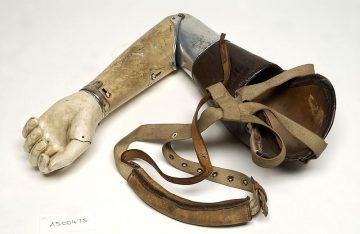by Godfrey Onime

Consider the case of James Edward Hanger, who was only 18 when the American civil war erupted. A promising engineering student, he left his studies at Washington College (now Washington & Lee University) to enlist in the military. The date was June 1, 1861.
Fate had other plans for the young man other than remaining a fighting soldier. On June 3rd, only two days after enlisting, Hanger was engaged at the Battle of Philippi (then in Virginia, and now West Virginia) when a cannonball ripped through his leg. To save his life, Hanger underwent a painful amputation of the limb, earning him the distinction of becoming the war’s first amputee. Returning to his family by August, the young man retreated into a solitude in his room, to the worry of his parents. Hanger was quoted as saying,
“No one can know what such a loss means unless he has suffered a similar catastrophe. In the twinkling of an eye, life’s fondest hopes seemed dead. What could the world hold for a maimed, crippled man?”
***
It is not difficult to understand how the young Hanger could have felt that way. Throughout history, many have shown contempt for the crippled — and even those who found themselves injured or captured in war. And in recent years, no less a powerful man than the president of the United States have publicly decried those who were killed in battle, maimed, or captured. For instance, while running for the Republican nomination for president of the United States in 2015, Donald J Trump famously lambasted the late John McCain who had spent more than five years as prisoner of war of the North Vietnamese. “He’s not a war hero,” Trump had said of the then U.S Senator and former republican presidential nominee. “I like people who weren’t captured.” And just last week, The Atlantic reported that the president had said that Americans who died in war are “losers” and “suckers.” Read more »
